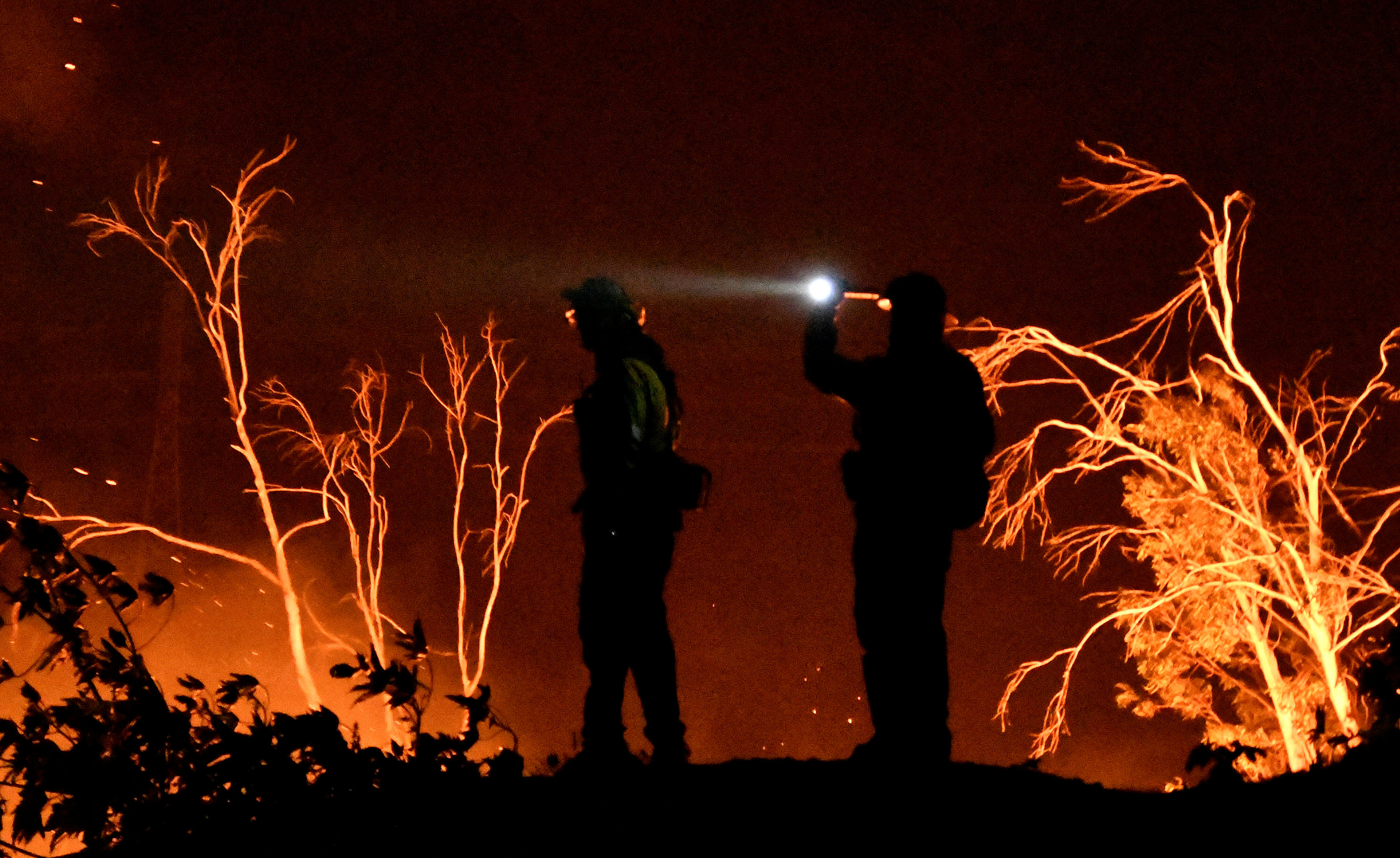
By Steve Gorman
LOS ANGELES (Reuters) – Crews battling to subdue the remnants of a sprawling Southern California wildfire gained more ground on Thursday after a resurgence of winds proved weaker than expected, allowing officials to lift all remaining evacuation orders and warnings.
The so-called Thomas fire, California’s second-largest on record, has charred 272,600 acres (110,317 hectares) of coastal mountains, foothills and canyons across Ventura and Santa Barbara counties northwest of Los Angeles, fire officials said.
The fire’s spread was largely halted this week as crews extended safety buffer lines around most of its perimeter, hacking away thick chaparral and brush before it could ignite and torching some vegetation in controlled-burning operations.
Containment of the fire grew to 65 percent on Thursday, up from 60 percent a day earlier.
Much of the progress was made during three days in which diminished winds, cooler temperatures and higher humidity levels allowed firefighters to go on the attack against a blaze that had kept them on the defensive for the better part of two weeks.
A new bout of strong winds had been forecast to accelerate to 50 miles per hour (80 km per hour) on Thursday morning, stoking extreme fire conditions again, but turned out to be less forceful than expected, authorities said.
“We didn’t really see the winds that were predicted,” said Brandon Vaccaro, a spokesman for the firefighting command. Containment lines already carved around populated areas “held really well,” he said.
More than 1,000 homes and other structures were destroyed and well over 100,000 people were forced to flee their dwellings at the height of the fire storm, but abandoned communities were gradually reopened to residents this week.
On Thursday, authorities canceled the last evacuation notices still in effect for Santa Barbara and Ventura counties.
Only one fatality directly related to the fire has been reported, a firefighter who succumbed to burns and smoke inhalation in the line of duty last Thursday.
As the fire threat waned, the number of personnel assigned to fight the blaze has been scaled back to about 4,700, down from 8,500 at the fire’s peak.
In terms of burned landscape, the Thomas fire ranks a close second to California’s largest wildfire on record, the 2003 Cedar blaze in San Diego County, which consumed 273,246 acres (110,579 hectares) and killed 15 people.
The Thomas fire erupted Dec. 4 and was fanned by hot, dry Santa Ana winds blowing with rare hurricane force from the eastern deserts, spreading flames across miles of Southern California’s rugged, drought-parched coastal terrain.
Forecasts called for a return of mild Santa Ana gusts late on Thursday, “but it shouldn’t be anything that really challenges us,” Vaccaro said.
The California Department of Forestry and Fire Protection has estimated the cost of fighting the blaze at more than $167 million. The cause has not been determined.
The Thomas fire came two months after a spate of wind-driven blazes in Northern California’s wine country incinerated several thousand homes and killed more than 40 people, ranking as the deadliest rash of wildfires, and one of the most destructive, in state history.
(Additional reporting by Brendan O’Brien in Milwaukee and Peter Szekely in New York; Editing by Chris Reese and Leslie Adler)







